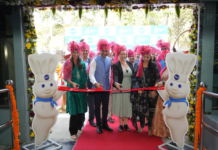According to GlobalData’s recent report, Nestle is mulling to sell two of its Chinese businesses – confectioner Hsu Fu Chi and porridge maker Yinlu – and, if deals are done, it will underline how multinationals are now looking at markets such as China very differently.
Dean Best, a food editor at GlobalData, offers his view and says, “What multinational FMCG companies need to do to succeed in China is changing. In the wake of China starting to open up to foreign investment in the late 1970s and the early 1980s, multinationals across a range of industries – including packaged food – stepped up their presence in the country over the next 30 years, with many seeking a blanket, one-size-fits-all approach, selling into mainstream categories and investing in local, mainstream businesses.”
He also stated that millennial Chinese consumers are increasingly looking for premium products, for healthier foods, and lifestyle brands. The shift to online shopping in China – more advanced than in many other western markets – has also upended the way FMCG categories operate in China.
“Both Yinlu and Hsu Fu Chi have had specific challenges, predominantly from stiff local competition, and Nestle has been struggling to breathe fresh life into the assets,” he added.
It’s important to note that Nestle is so far refusing to comment on the reports and no deals have been announced. “But, if Nestle does sell either Yinlu or Hsu Fu Chi (or both), it would demonstrate the world’s largest food maker has acknowledged the rules of the game in China have changed, leaving the group to focus on areas like coffee and infant formula, categories that offer opportunities to leverage the premium and health trends shaping the FMCG market in the country,” he concluded.
IndiFoodBev — authentic, impactful and influential
An English-language food and beverage processing and packaging industry B2B platform in print and web, IndiFoodBev is in its third year of publication. It is said that the Indian food and beverage industries represent approximately US$ 900 billion in revenues which implies more than 20% of the country’s GDP. Eliminating the wastage on the farmside can help to deliver more protein to a higher number of the population apart from generating sizable exports. The savings in soil, seeds, water, fertilizer, energy and ultimately food and nutrition could be the most immense contribution that country is poised to make to the moderation of climate change.
To improve your marketing and grow sales to the food and beverage processing and packaging industry, talk to us. Our research and consulting company IppStar [www.ippstar.org] can assess your potential and addressable markets in light of the competition. We can discuss marketing, communication, and sales strategies for market entry and growth.
Suppliers and service providers with a strategy and budget for targeted marketing can discuss using our hybrid print, web, video, and social media channels to create brand recognition linked to market relevance. Our technical writers are ready to meet you and your customers for content.
The second largest producer of fruit and vegetables in the world is continuously expanding processing capacities and delivery systems with appropriate innovative technologies. We cover product and consumer trends, nutrition, processing, research, equipment and packaging from farm to thali. Get our 2025 media kit and recalibrate your role in this dynamic market. Enhance your visibility and relevance to existing markets and turn potential customers into conversations. Ask for a sample copy of our bi-monthly in print or our weekly IndiFoodBev eZine each Wednesday.
For editorial info@ippgroup.in — for advertisement ads1@ippgroup.in and for subscriptions subscription@ippgroup.in
Naresh Khanna – 10 February 2025
Subscribe Now











